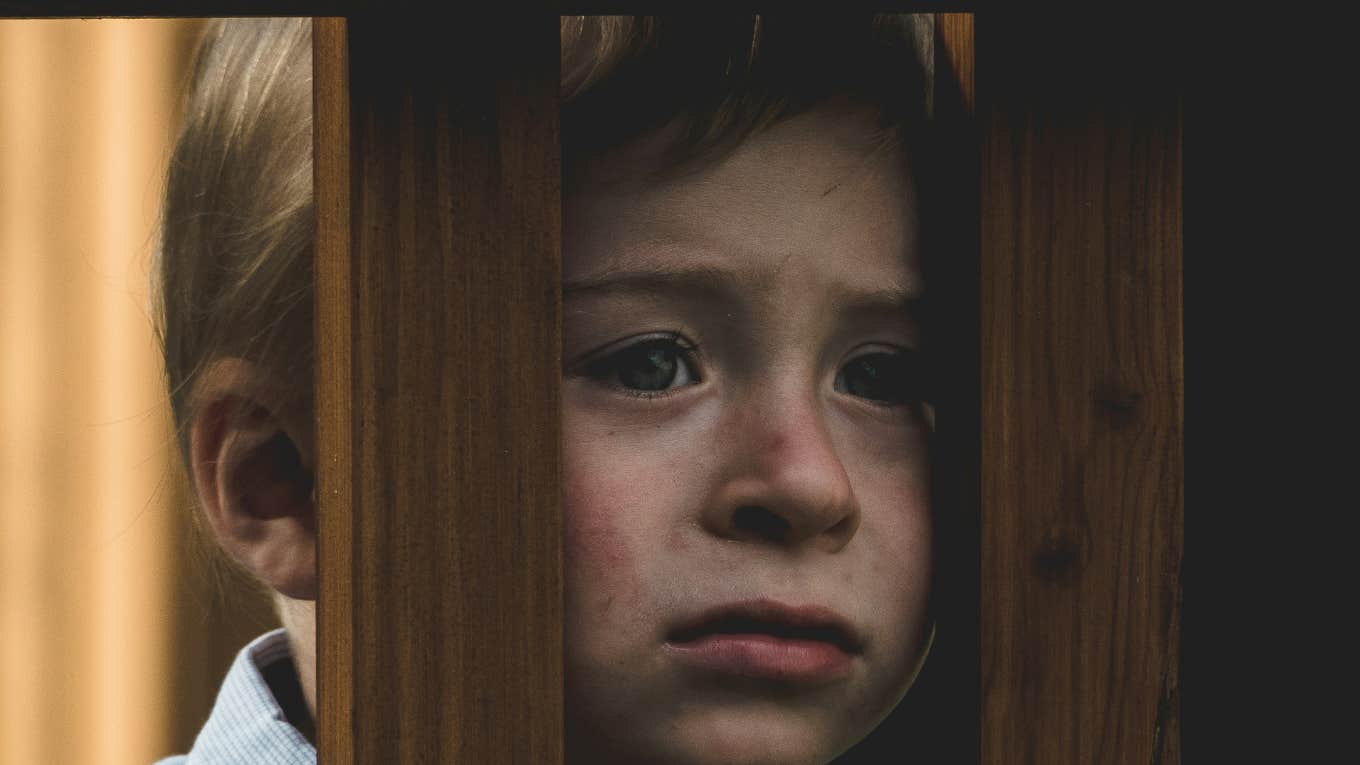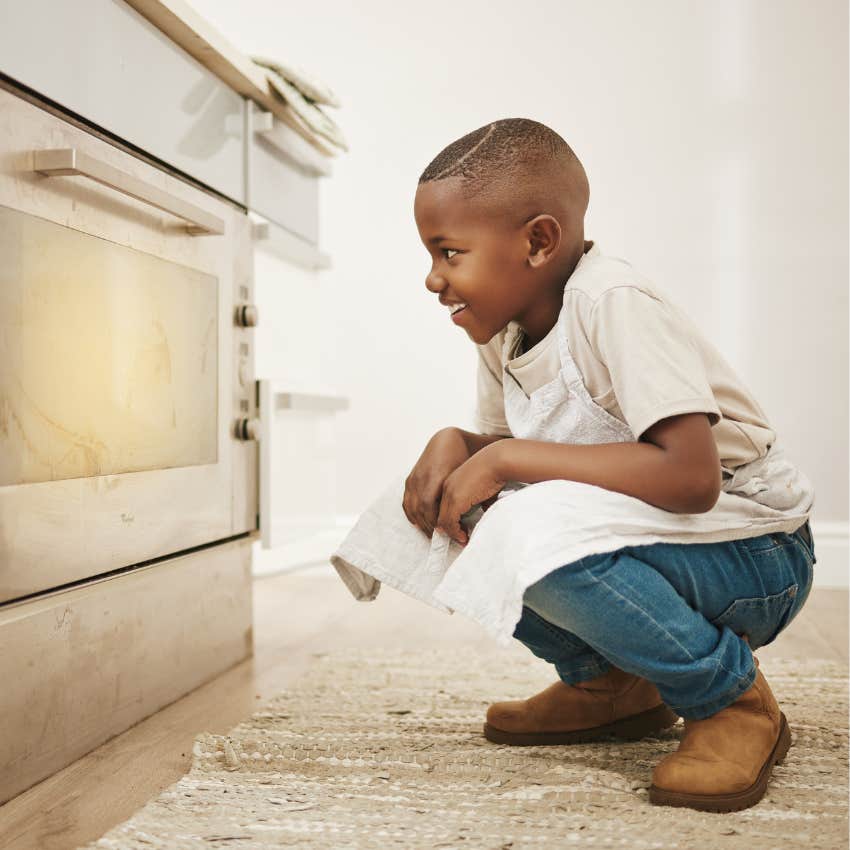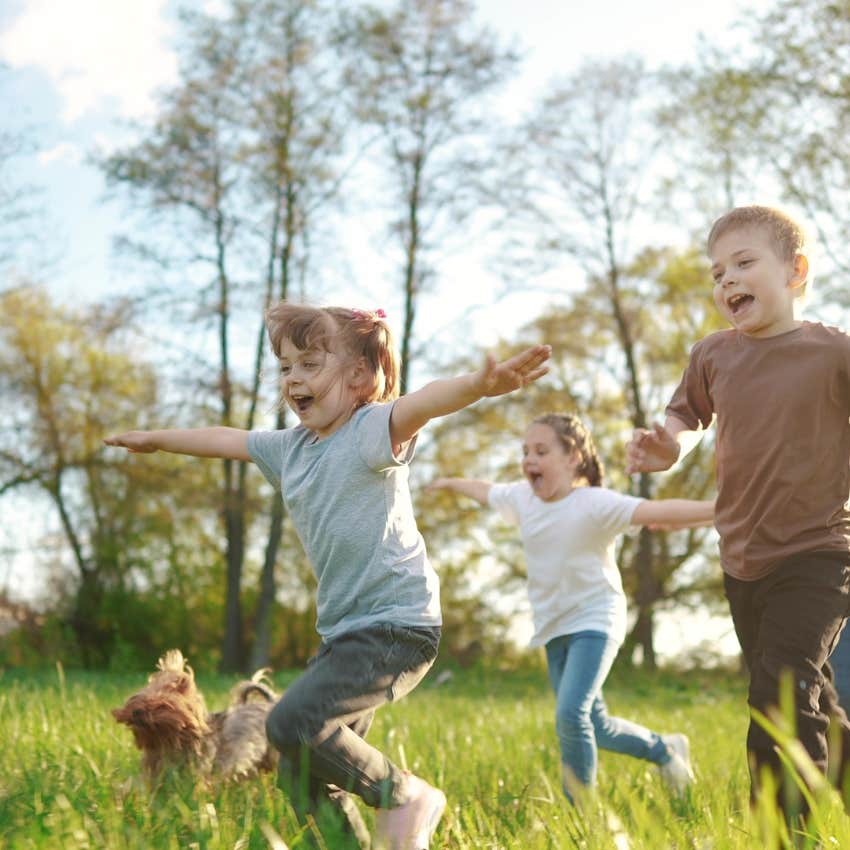I’m Proud To Be A Gen X Benignly Neglectful Parent — 'My Kids Rarely Knew Where I Was'
Newer generations of parents are raising their children to be scared of the world.
 Tadeuz Lakota | Unsplash
Tadeuz Lakota | Unsplash "He was in a diaper!" Tammy laughed. "And he had this little flag." She paused. "He forgot the curry."
My friends and I were gathered in my backyard, discussing Netflix’s hit show, Old Enough!, in which Japanese toddlers run errands with camera and safety crews in tow. It’s strangely addictive, and we have all binge-watched it.
"I can’t believe anyone would send a toddler out to do an errand on their own," Kelly said. "My students can’t handle four-step directions in middle school. They literally have meltdowns."
"Maybe that’s the problem," I said. "They’ve been told they can’t so they don’t believe they can."
I’m proud to be a gen-x benignly neglectful parent
My friends stared at me for a moment, no one saying anything. In my group, I’m the "laid-back" mom. The one who doesn’t obsessively monitor my kids' grades or hover over them while they do homework. I don’t help them study for tests or speak to teachers on their behalf. My sons make their own meals when they are hungry, wash their own laundry, and manage their own doctor appointments — all things they can do because I believed they could.
 Yuri A / Shutterstock
Yuri A / Shutterstock
Since they were toddlers, I’ve been, as my good friend once said, a benignly negligent parent by American standards. I let my sons make messes, climb towering trees, and use power tools before the age of ten. My job, as I see it, is to give them the freedom to foster curiosity and guidance to thrive. Childhood responsibility is a vital part of turning kids into functioning adults.
"They are babies, Mia," Kelly chided. "Babies shouldn’t be doing that kind of thing."
I shrugged. "Why not? They’re clearly capable, and kids love helping. It’s how they learn best."
We chatted a bit more about the show, and while we were all fascinated by it, I was the only one who didn’t think the tasks given to the toddlers were too hard. Later, as I read comments about Old Enough! online, I realized many American parents are flabbergasted that young children can navigate the world on their own.
Creating magical and stress-free childhoods has become a goal, and some of the comments I read suggested giving children autonomy and age-appropriate responsibilities are cruel and unfair. In this view, kids should be sheltered from hardship and challenges as much as possible.
Maye Musk (mother of Elon, Kimbal, and Tosca) believes differently. “Children don’t need to be protected from the reality of responsibility,” she wrote in a CNBC Make It article. I agree with her.
The baffled and concerned reactions to Old Enough! demonstrates how some parents over-protect their offspring and are afraid to let their kids do anything deemed too hard or scary.
As I said to my friend, if children are never given the opportunity to try — whether the result is success or failure — they will never know that they are capable. Childhood and adolescence are the times when kids have a safe place to fall, learn, and recover from missteps. When that’s taken away, what’s left is a young adult who lacks resilience and confidence.
I taught my boys from a young age basic responsibilities like picking up their toys, helping with housework, and running errands with me. By the time the oldest two were four and six, they crossed six busy lanes of traffic walking to and from school each day. They didn’t have a cellphone — only pocket change to buy a bagel or cookie from the bakery after school.
Like most of their friends, they were confident and comfortable walking around our San Francisco neighborhood alone. And why wouldn’t they be? I had taught them how to cross that busy street, who the people in our neighborhood were, and how to be aware of their surroundings. Walking to school wasn’t scary for them. In fact, they were tremendously proud of themselves and readily took on new challenges.
My sons were not exceptional. They were normal kids who had been given autonomy to try new things.
They believed in themselves because I believed in them.
Nothing changed when we moved to Paris. After familiarizing my sons with our neighborhood, I tasked them with daily trips to the patisserie for fresh bread and treats as well as trips to the grocery store. They spoke no French, but they managed to navigate the streets and the shops without issue. They would return with wide smiles, leave the groceries for me, and hurry to the playground five city blocks away.
Eventually, they even rode the metro without me — at ages eight and ten. I thought nothing of it, to be honest. In San Francisco, "free-range parenting" was normal and Parisian parents tended to their offspring in much the same way. My sons explored the world and approached new situations with confidence because they had been given the tools to be successful.
When we moved to the DC suburbs, my sons were eager to bike around our sleepy neighborhood. After living in cities their entire lives, having wide-open spaces to play was a novelty and they couldn’t wait to visit the creek that bordered our subdivision. However, their exploration was met with frowns and scolding from well-meaning neighbors. I was chastised and told my children could be kidnapped riding their bikes to the park, and my kids were often asked where their mother was.
One afternoon, a neighbor knocked on my door and explained my parenting style was stressful to her. She lived in fear for my children, and I should be concerned that they liked to play in the woods behind our houses. There were snakes. And ticks. And a creek.
I told her they had on bug spray, thanked her for her concern, and went back to making dinner.
Because here’s the thing: when we raise our children to be fearful, they become fearful.
 ibragimova / Shutterstock
ibragimova / Shutterstock
I see this every day on the parenting forums I visit.
Moms and dads wringing their hands about whether to let their twenty-something son or daughter travel on their own. There are angry posts about adult children being overwhelmed at work and HR not communicating with the parents. Some parents don’t understand why their nineteen-year-old is afraid to drive or go to college. They openly, and sometimes laughingly, discuss their children’s fear of adulting.
Why do we have a generation of young people unable to cope with being adults?
As parents, we’ve let our fear of strangers, the fear of our kids not getting into the right school, and our fear of being seen as a “not perfect” parent trickle down to our kids. By removing once-common childhood responsibilities like going to the store alone or doing schoolwork without parental help, we’ve created more stress for ourselves and raised young people who are more scared of the world than we ever were at their age.
The toddlers on Old Enough! are normal little kids who believe they can do their tasks because their parents have given them the tools to do it.
Biking to the playground alone or walking to school without an adult should not be a terrifying experience for kids, parents, or neighbors. Installing our kids with the confidence that comes from having responsibilities is what creates capable young adults who don’t need their parents to make decisions for them.
So maybe I am benignly neglectful, but my sons are not afraid of the world and can handle unfamiliar situations — just like the toddlers on Old Enough!
Mia Hayes writes about her marriage and life. She is the author of the Waterford Novels and The Has-Beens.

